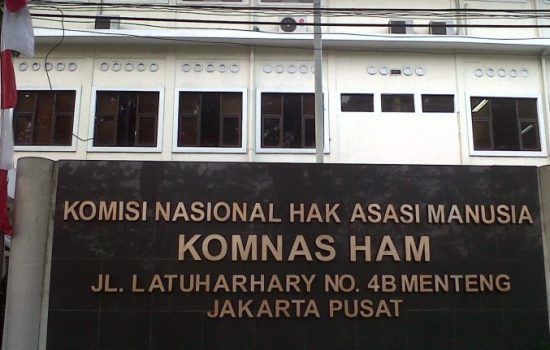Both decisions has undermined the criminal law principles and constitutes a violation of freedom of expression protected by the Indonesian Constitution
Institute for Criminal Justice Reform (ICJR) criticizes District Court of Bandung on Wesni Yetti’s case and District Court of Yogyakarta on Florence’s case, as both of the decisions has undermined the existing criminal law principles. Wesni Yetti was sentenced for 5 months imprison and fines for IDR 100 million by District Court of Bandung, meanwhile Florence Sihombing was sentenced for 2 months imprison with a six-month of probation and fines for IDR 10 million by District Court of Yogyakarta.
On Wisni Yetti’s case, the prosecutor was charged the defendant with Article 27 (1) in conjunction with Article 45 (1) of Law No. 11 of 2008 on Electronic Information and Transaction (EIT Law).
“Any Person who knowingly and without authority distributes and/or transmits and/or causes to be accessible Electronic Information and/or Electronic Records with contents against propriety”
ICJR reminded that criminal offences against decency regulated under the EIT Law must be interpreted in accordance with criminal offences against decency stipulated in Indonesian Criminal Code (KUHP), which incorporated 24 articles on crimes against decency. Further, KUHP provides that one of the elements of crimes against decency is that the act must be performed in public area, not in private medium, such as chatting box feature on Facebook.
ICJR also criticized the District Court of Bandung that has admitted the evidence in the form of conversation print out without attempting to validate the legality of the process in gathering such evidence as well as the conversation contained in the print out. Absence of this validation, ICJR perceived that the District Court of Bandung has violated rules of evidence regulated under Indonesian Criminal Procedural Code (KUHAP).
On Florence Sihombing’s case, the prosecutor was charged the defendant with Article 28 (2) and Article 27 (3) of EIT Law and was found guilty by the District Court of Yogyakarta in violating Article 27 (3) of EIT Law.
“Any Person who knowingly and without authority disseminates information aimed at inflicting hatred or dissension on individuals and/or certain groups of community based on ethnic groups, religions, races, and intergroups (SARA)” (Article 28 (2) EIT Law)
“Any Person who knowingly and without authority distributes and/or transmits and/or causes to be accessible Electronic Information and/or Electronic Records with contents of affronts and/or defamation” (Article 27 (3), EIT Law)
ICJR contended that the emotional statement expressed by Florence Sihombing does not fall under the Article 27 (3) EIT Law, as defamation crimes can only be addressed to individual and not group of people. Moreover, IJCR also believes that the statement was not intended to convey any hate speech against particular group of people in Indonesia. Besides, these two articles that are charged against Florence Sihombing, again, must be interpreted in accordance with provision in KUHP to determine the quality of the statement made by Florence Sihombing through her limited scope social media “Path”.
District Court of Yogyakarta, according to ICJR, has violated the criminal law principles on defamation offences regulated under Defamation Chapter in KUHP and EIT Law, which can only be addressed to individual, not group of people or specific region.
Having regards to these two cases, ICJR urges the government to accelerate the amendment process of EIT Law that has been put on hold since 2009. ICRJ also demand the government and House of Representative to revoke criminal provisions under various laws which merely a duplication of provision in KUHP.




